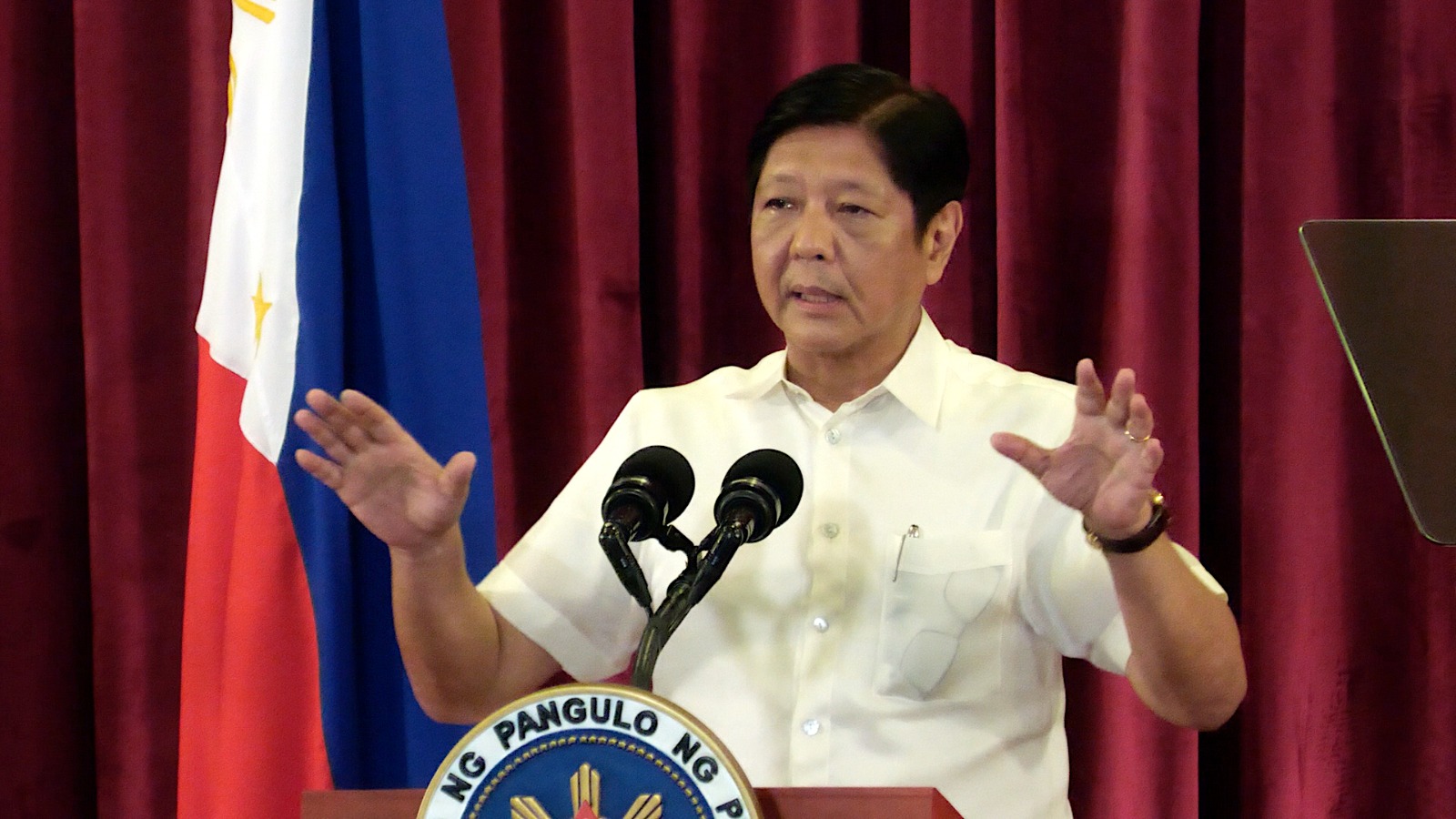Bongbong Marcos reiterates joint security agenda of US, SoKor, and Japan amid sea row

President Ferdiand “Bongbong” Marcos Jr. imparts some message during his pre-departure speech at Villamor Air Base prior to his trip for the Asean Summit in Indonesia. | PHOTO: INQUIRER.net file photo / Ryan Leagogo
JAKARTA, Indonesia — President Ferdinand Marcos Jr. reminded the United States (US), Japan and South Korea, key allies in the South China Sea row, of a joint security agenda between them.

Addressing the three countries in separate intervention speeches at the 43rd Association of Southeast Asian Nations (Asean), Marcos said that the Spirit of Camp David summit cemented a security agenda addressing issues in the Indo-Pacific region.
READ: US, Japan, South Korea to announce deeper defense cooperation at Camp David summit
“The statement opposes any unilateral attempts to change the status quo in the waters of the Indo-Pacific and the militarization of reclaimed features in the South China Sea, as well as expresses concern for the continued illegal, unreported, and unregulated fishing that affects our fisherfolk,” said Marcos in the Asean-US summit.
During the Asean-Japan Summit, Marcos thanked Japan for its role in upholding peace in the region. The Philippines and Japan both share the desire to maintain peace and stability in the South China Sea, said Marcos.
“I cannot emphasize enough the expediency of maintaining peace and stability in the region through the adherence to the rule of law, particularly the 1982 Unclos (United Nations Convention on the Law of the Sea). Our shifting security issues make it quite clear that we must work together for the sake of peace and stability in our region and in the world,” said Marcos in the Asean-Japan Summit.
During the Asean-South Korea Summit, Marcos also extended his gratitude to South Korea, the third partner in the joint security agenda. The country had also supported the 1982 Unclos, Marcos said.
“We share concerns on the militarization of reclaimed features; the dangerous use of coast guard and maritime militia vessels; and other coercive activities. We are equally alarmed by illegal, unreported, and unregulated fishing which are being detected,” said the President.
While Marcos did not explicitly comment on the issues surrounding the South China Sea, China’s presence continuously looms over the disputed waters.
China’s behavior has earned the ire of the international community. One of its latest actions included a water cannon attack on the Philippine Coast Guard back in August.
RELATED STORIES:
US: China’s water cannon attack in WPS ‘threatening regional peace and stability’
US, Japan, Australia plan joint navy drills in South China Sea – PH officials